Even the smallest nations can benefit from space technology
by Agency Staff,
2016-03-08 13:18:51.0
SAN JOSÉ — Space shouldn’t be the privileged domain of big countries but a frontier open to all, astronauts and scientists gathered in Costa Rica said on Monday.
Even the smallest nations benefit from access to space technology, for example, improving farming and providing better understanding of oceans, weather and climactic changes, they told a news conference at the beginning of a week-long forum.
"Thirty years ago, when we were in space, we all looked out the window and saw our blue planet," said Bill Nelson, a US senator and former astronaut who participated in a 1986 voyage on the space shuttle Columbia.
"We did not see political divisions, we did not see religious divisions, we did not see racial divisions. We are in this together." Mr Nelson and other members of that mission were invited to San Jose by another crew member, US-Costa Rican astronaut Franklin Chang, to commemorate the 30th anniversary of that shuttle expedition.
Mr Chang, who pioneers plasma research in Costa Rica, underlined that the space technology sector was worth $300bn and growing at 5% annually.
"Space is our future and should be shared by all human beings," he said, urging "a future of collaboration and not confrontation, of inclusion and not exclusion." Costa Rican President Luis Guillermo Solis opened the forum showcasing 110 companies linked to the aerospace industry, which together employ 4,000 people.
The event also drew more than 120 astronauts and scientists.
The president noted that all the Central American countries were working together to build a mini-satellite forecast to be launched in 2018 to monitor the region’s forests.
"We should look after space as much as we do our planet," he said, adding that responsible and shared work in the area should be for "the benefit of humanity". The director of the United Nations Office for Outer Space Affairs, Simonetta Di Pippo, told the news conference that the forum in Costa Rica would "increase awareness about the benefits of human space technology and its multiple applications".
AFP
-

Picture: ISTOCK
-
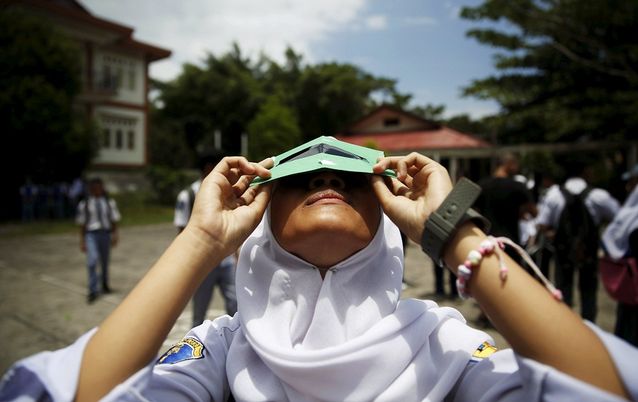
A student tests a self-made filter and looks at the sun after a joint workshop between the Hong Kong Astronomical Society and Indonesia's National Institute of Aeronautics and Space (LAPAN) at a high school in Ternate island, Indonesia, ahead of Wednesday's solar eclipse. REUTERS/BEAWIHARTA
SAN JOSÉ — Space shouldn’t be the privileged domain of big countries but a frontier open to all, astronauts and scientists gathered in Costa Rica said on Monday.
Even the smallest nations benefit from access to space technology, for example, improving farming and providing better understanding of oceans, weather and climactic changes, they told a news conference at the beginning of a week-long forum.
"Thirty years ago, when we were in space, we all looked out the window and saw our blue planet," said Bill Nelson, a US senator and former astronaut who participated in a 1986 voyage on the space shuttle Columbia.
"We did not see political divisions, we did not see religious divisions, we did not see racial divisions. We are in this together." Mr Nelson and other members of that mission were invited to San Jose by another crew member, US-Costa Rican astronaut Franklin Chang, to commemorate the 30th anniversary of that shuttle expedition.
Mr Chang, who pioneers plasma research in Costa Rica, underlined that the space technology sector was worth $300bn and growing at 5% annually.
"Space is our future and should be shared by all human beings," he said, urging "a future of collaboration and not confrontation, of inclusion and not exclusion." Costa Rican President Luis Guillermo Solis opened the forum showcasing 110 companies linked to the aerospace industry, which together employ 4,000 people.
The event also drew more than 120 astronauts and scientists.
The president noted that all the Central American countries were working together to build a mini-satellite forecast to be launched in 2018 to monitor the region’s forests.
"We should look after space as much as we do our planet," he said, adding that responsible and shared work in the area should be for "the benefit of humanity". The director of the United Nations Office for Outer Space Affairs, Simonetta Di Pippo, told the news conference that the forum in Costa Rica would "increase awareness about the benefits of human space technology and its multiple applications".
AFP


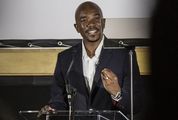
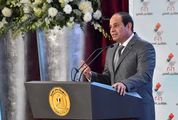
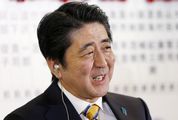



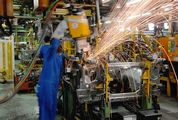
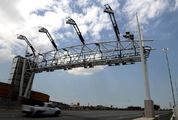














Change: -0.59%
Change: -0.56%
Change: -0.22%
Change: -0.40%
Change: -1.58%
Data supplied by Profile Data
Change: 0.08%
Change: 0.11%
Change: -0.59%
Change: 0.00%
Change: 0.05%
Data supplied by Profile Data
Change: 0.36%
Change: 0.39%
Change: 0.38%
Change: 0.15%
Change: -0.35%
Data supplied by Profile Data
Change: -0.36%
Change: 0.53%
Change: -1.11%
Change: -0.53%
Change: -1.57%
Data supplied by Profile Data